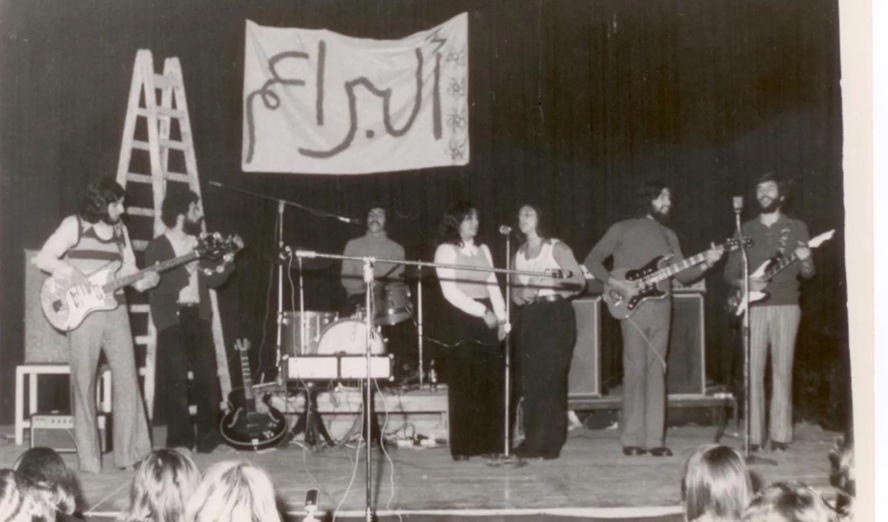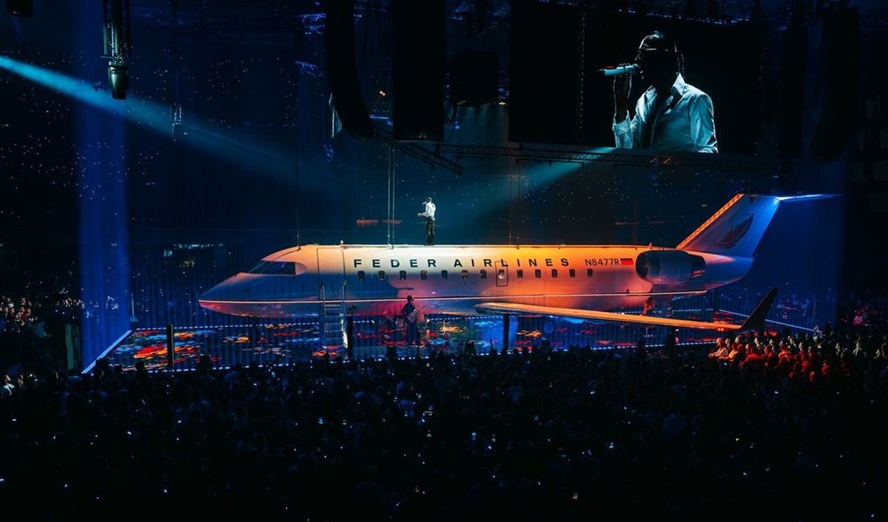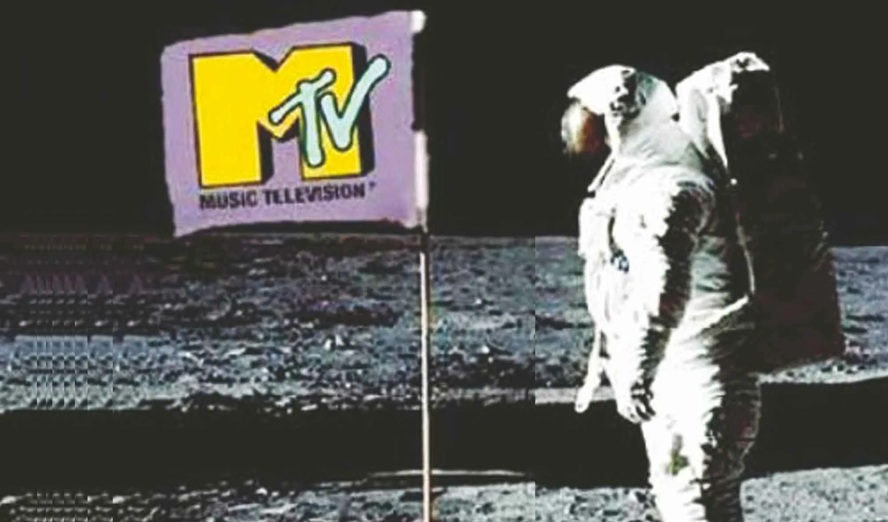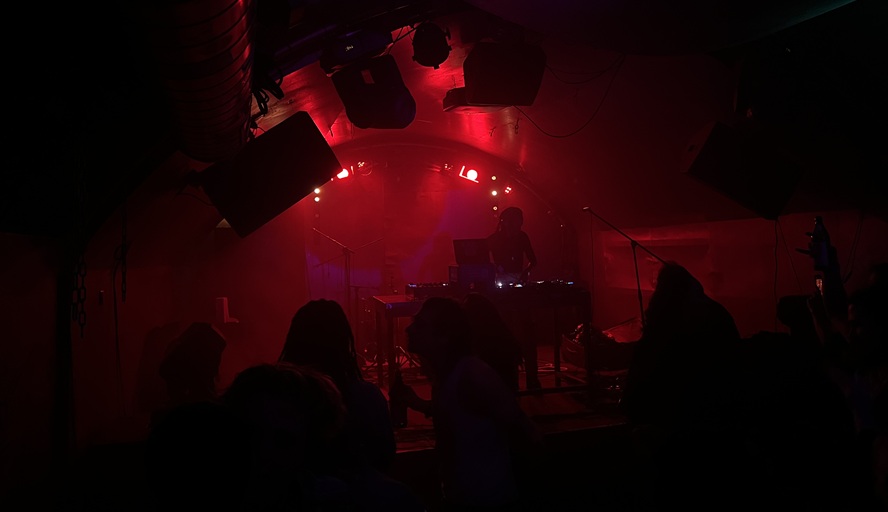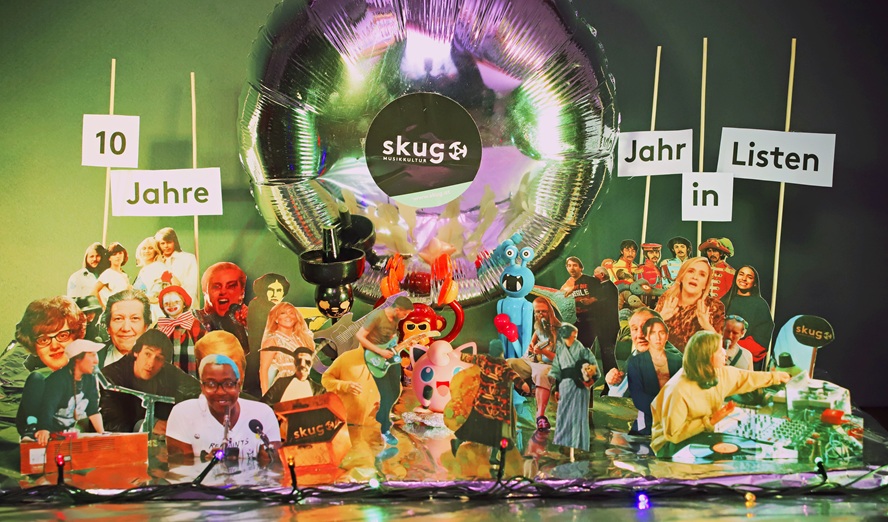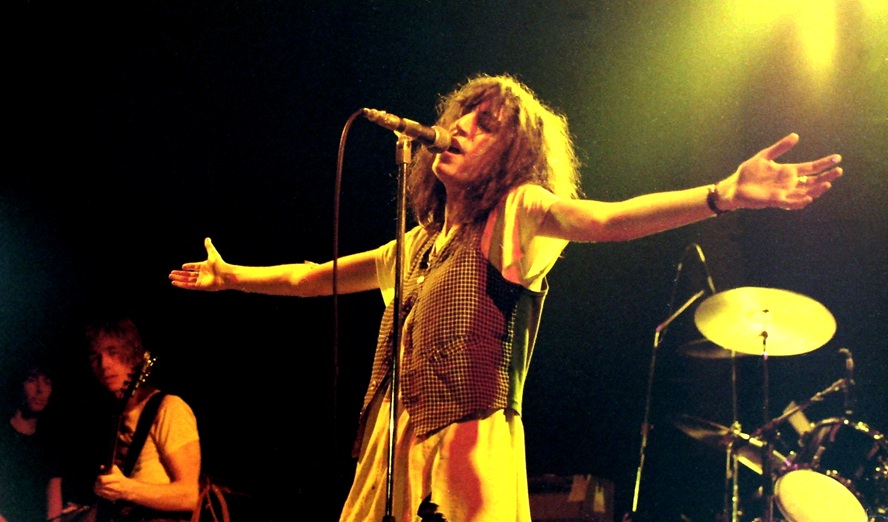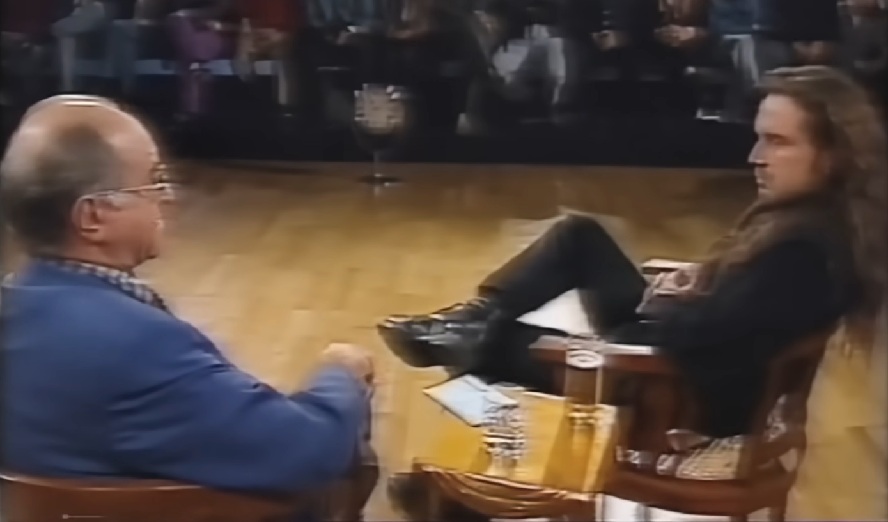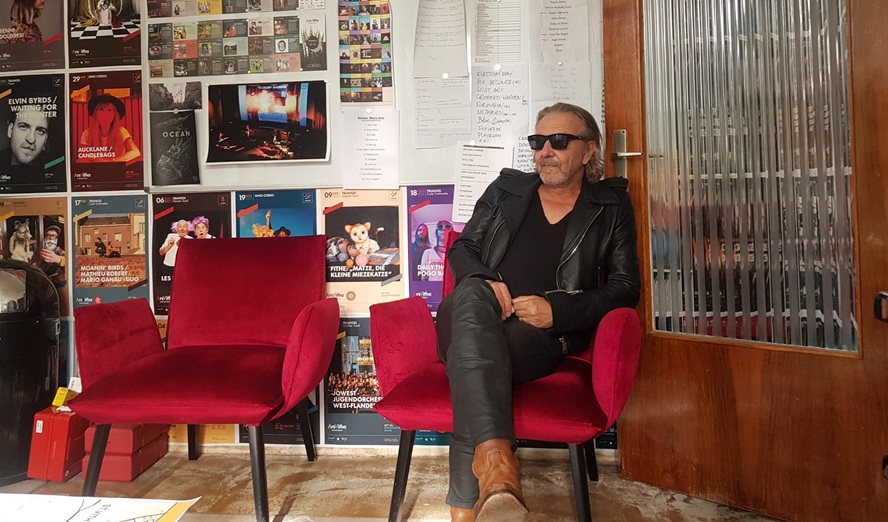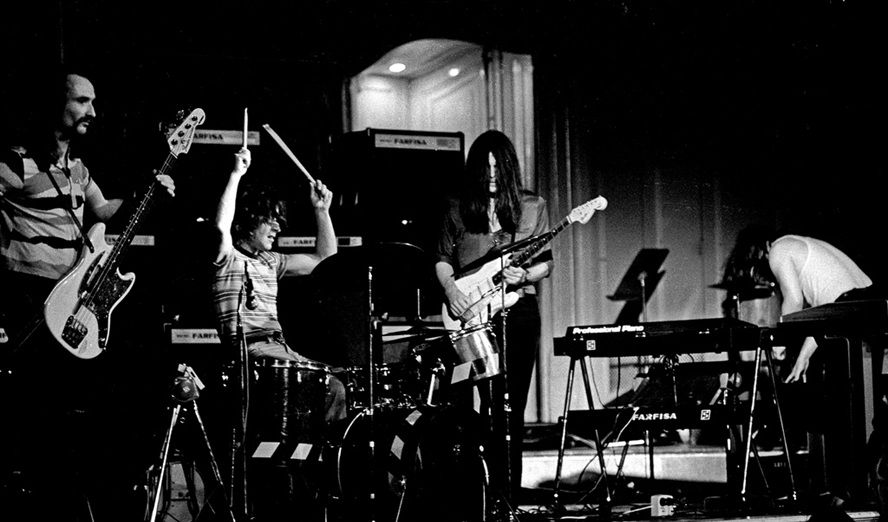A »minor detail« kept the Glenn Branca Ensemble from fully bringing out the subtleties of its acoustic force at the Donaufestival 2010 in Krems. The PA system was geared toward pop music and wasn’t sophisticated enough for the range and vibrant sounds of the group’s harmonics. After the concert, Alfred Pranzl and Roland Schöny talked to the wise New York master of catharsis about the aesthetics of noise, his relationship to John Cage, his way of composing and conducting, and about how he is trying to distance himself with brute aesthetic force from destructive human instincts.
skug: Our talk is part of I longer research on noise aesthetics, I’m working on. However your aesthetic does not have so much to do with noise, but with intensity. So, I start with a conventional question: How do you feel after such a gig like this? In the audience it was extremely loud, intensive and I can’t imagine how it feels on stage.
Glenn Branca: Well, actually we didn’t crank it up real loud on the stage tonight, that usually doesn’t make any difference through the PA. From my own point of view it wasn’t real loud. I like all music loud whether it’s the Beatles or whether it’s Beethoven. But the audience absorbed a lot of the sound of the music tonight. So, I try to put the intensity in the music instead of on the stage. It should be in the music. It shouldn’t matter whether I conduct or not. For instance I’ve been doing a piece for a hundred guitars for the last 3 or 4 years. We’ve only played in Europe a few times with that piece. I don’t conduct it. The conductor is a former musician with my band named John Myers. He’s back in New York and may be playing with me again.
But in general these compositions are based on harmonies.
It’s my version of what I think of as harmony. I think very seriously about, but I use every type of technique you can possibly imagine to approach. I don’t like to use any conventional approach. Sometimes the approach is very experimental and very loose form and sometimes it’s very tight and very worked out and sometimes it’s a combination of both.
Tonight, these compositions? Was everything written?
The last one was a structured improvisation which is one I’ve worked on a lot in my early days, composing in the 70s. I used a lot of structured improvisation and mainly because many of the musicians I worked with weren’t musicians. I give them a general idea of what I want. For instance one of my most popular pieces is »Lesson No. 1 for Electric Guitar«. It was released in 1980 and that’s a structured improvisation. Most people wouldn’t imagine that. But it’s not an improvisation like John Zorn or Miles Davis. They are gigantic… Miles Davis. I’m not gigantic.
You mentioned different terms as polarities. How would you define the borderline between noise and intensity?
A very interesting question because there’s no doubt that dynamic is an incredibly important factor in the way a chord sounds. Usually harmony is taught as a certain combination of notes that create a certain effect. This is not true. It means to have every single aspect of the sound and the performance and the instrument and the composition, all coming together at the same time to create the way it’s going to sound. So, yes, it’s a combination of both. I see myself in the audience listening to the music. And I want to create an experience for the audience.
Space is a very important term for your kind of composing. You started in the context of perception in theatre categories. One of the basic terms of the theatre stage is the body in space or the body in space and time. Your way of composing is a kind of a space experience. It’s a kind of exploration that fills the whole concert hall.
I’m happy that you said all of that during the course of the interview instead of writing it after we did the interview to make yourself look better. A lot of interviewers do that. That was very articulate.
But things have changed since I started. I did think more in terms of space and more in terms of music as theatre and that has actually changed for me. I do think more in terms of creating a work that can exist in any form, whether it’s recorded or whether it’s performed or whether I’m here or not. And I’m also, in my early years, working with a lot of guitars in the 80s. I got a lot of acoustic phenomenon in the room, there were lot of what people used to call ghost tones that occurred. One of the reasons was that music is also a psycho-acoustical event. It’s not again something that can just be written down on a piece of paper. In fact the music of the 20th century, a lot of the 12-tone serial music was even referred to as eye-music. It looked good on paper but it didn’t sound very good. My whole idea right from the beginning was to make music that sounded good at least to me.
You don’t like 12-tone music?
12-tone serialism? No I hate it. I’ve always hated it. I’ve listened to everything and yes there is an Elliott Carter’s string quartet that I like. Of course there are any numbers, Stockhausen pieces ??
But let’s continue in terms of space.
Well, but I’m also not so interested in music that deals only with space. I like to compose, I like to write. I could have been a journalist, I could have been a novelist. I enjoy writing, I enjoy being by myself and imagine something. As I get older, I’m more interested in writing than in performing. Now I find myself in a position where often I have to perform in order to get the work, to be brutally honest about it. I would prefer not to. But people want to see me and I can still enjoy it.
I should tell you one thing about tonight’s performance that I’ve never done before and will probably never do again. There’s a conductor named Otto Klemperer. I didn’t know that there was any conductor who had ever conducted the way I conduct; especially in the 80s, when I was younger and had much more energy. I was shocked how full his conducting was. Tonight I gave an impression for about 2 1/2 or 3 minutes about Otto Klemperer. I don’t know, if anybody had noticed that. Maybe somebody made a film ?? it was a little tribute to someone that I consider to be a great conductor.
But obviously you could keep your fascination for guitar sounds.
I still like guitars as I still write for guitars and the whole thing came about very coincidentally because I’ve got the commission to write a piece for a small ensemble which I usually don’t take but because it was for Steve Reich, who is one of my favourite composers. It was a major festival in London, I said: ok, I’ll do it. I wrote a piece for 4 guitars and drums. Then there are other opportunities to perform it and I realise that I can get really good sound with a very small ensemble. The piece »The Ascension: Three« is in the works and probably will be premiered before the end of the year. And will be very different from this.
This leads to one further question regarding the role of the musicians on stage. The question is: Would you define the musicians as interpreters or as instruments? What’s their role?
These new works wouldn’t even exist without this particular group of musicians. I need musicians who not only understand what I do but also who can read notation. There are plenty of rock musicians who would like to make a hell of a noise in my group, but I write everything in staff notation ?? now except as I said this one very short piece which was a structured improvisation. But without these particular people this wouldn’t have happened at all. To say that they are interpreting the music – it’s not really that. It’s more of a ?? I couldn’t even use the word collaboration. The music is very carefully written, it’s little difficult to play even for very trained musicians. I very rarely write rhythms that aren’t constantly crossing the bar-line.
Sometimes it’s like Elliott Sharp, very mathematical ??
Yes, yes I love to use process as I said I’m a gigantic fan of Steve Reich. That piece is very very very hard to play, the piece called »Lesson No. 3« which was a tribute to Steve Reich. It requires a tremendous amount of concentration. The respect I have for these musicians is over the top because I need them. Without them I couldn’t do pieces like this. It was the same with Steve Reich, he had special people. In the early days, when he was writing, his average tempo was 200 beats a minute – quarter-notes a minute – ridiculously fast playing syncopated rhythms at 200 quarter-notes. Most classical musicians in the 70s absolutely could not play that. At the end of this piece tonight, Libby, my drummer, always gets up to about 208 and these people are still reading it, they are still playing syncopated rhythms as required, as I said crossing the bar-line.
So your role as a conductor is it kind of transferring a plan of communication?
?? they need cues for one thing because it is hard to know where you have – in that particular piece – so much repetition. I give a cue every ten counts and then every ten measures. Then of course there are places where people drop in and drop out. But the truth is: We’ve played the piece enough times now that they don’t really need me. The conductor’s job is really to interpret and that’s got nothing to do with what I do because, I know exactly what I want it to sound like.
So if I tried to define the matrix of your work today I would say: minimal music, intensity, harmony, and loudness in space.
Well, I would say dynamics instead of loudness at this point. I don’t know, if you noticed but it wasn’t just all loud. I don’t like to go to orchestra concerts anymore because it’s just not loud enough. I’d like to do a piece for a 200-piece orchestra and there is plenty of room on the stage because, if you go to orchestra concerts sometimes they have 100-voice choir. There is enough room on the stage for a 200-piece orchestra. Go back to Bach through Mozart, through Beethoven, through Wagner, through Bruckner, through Mahler and you see the orchestra gets bigger and bigger. Why? People like it louder.
Here it seems to make sense to introduce one more term and this is extension.
This is an extension. Yes, there is no doubt. But I know people find a lot of music difficult to listen to now. My most popular records are records that I made and wrote 30 and more years ago. But the best music I wrote has been written after that. It’s much more complex, much more involved, much louder.
As far as I understood, the avant-garde of late 20th century like, let’s mention John Cage and his ideas of everything can be music, every sound can be interesting even when it’s noise, is not so important for you than the concepts of rhythm.
Yes, that was why Cage was upset with me. Cage made a very long and articulate attack on my music in the 80s. He wanted rhythm music to go away, he considered it to be fascist which I thought was utterly ridiculous. There have to be things only one man can do by himself that can’t be done as a collaborative process or as a random process. Who would want to see collaborative paintings, collaborative novels? Have you heard of a collaborative novel? It’s like to worst thing you have ever seen in you entire life. But I think, Cage is a poet, he was a musical poet. Cage is an incredibly important artist of our time. But I don’t think as a musician or as a composer that many people would ever want to listen to. I mean randomness doesn’t make something new, randomness makes sameness.
I remember the controversy in the late 1980s. But my question now is: Where does noise begin? How would you define noise? You have distance to such a kind of random music and one definition of noise is that it comes randomly.
NO! No, no, no! I’m not going to help you with the noise thing, since I don’t consider it noise. It’s structured, it’s music. There are as many different kinds of noise as there are different kinds of harmonies.
Maybe we should talk about harmonics.
The problem tonight was, it was plenty loud enough during the sound-check, but I was disappointed in the fact that the volume disappeared when the audience came in. The musicians had to work a lot harder and it wasn’t as much fun for me. But I’m not necessarily interested in harmonics per se. What I’m saying is, every sound we make is just a combination of harmonics. It is just a result of the acoustics in the room. Of course, with more volume you accentuate the harmonics. The PA system really wasn’t quite big enough. What I’m getting at is that that system was actually built for either techno music, disco music or pop bands. We have the right kind of amplifiers on stage, we have the right kind of guitars, we have the right kind of drum-set. It sounded fantastic on stage and during the sound-check. But the audience absorbs so much of the sound. I could demand in the contract that I have a 20 hour sound-check, but this isn’t possible.
For the last maybe seven or eight years, there’s no discography on your website.
Yes, the website was a fan site originally. It was written in MS DOS and I haven’t written in MS DOS since the 80s and it was too much a pain in the ass for me to do, so?? But if you look at the front page, you’ll see what I’ve been doing: the 100-guitar-piece.
How often have you played it?
Whenever one can afford to do it. We’ve done it in Los Angeles, we’ve done it in St. Louis, we did it in London, we did it in Belgium. We’ve done it about 10 times.
For this concept you use local performers.
When we do it in New York, I can actually get 100. We usually get about 80 or something. There are 27 instrument groups and each needs to get mixed separately. I’ve been changing it and evolving it and developing it, some parts have been completely taken out and re-written and stretched. In addition to that I want to do an acoustic piece, »Music for Strange Orchestra«. We are using an incredible variety of instruments: everything from what you might call ethnic instruments to home-made instruments to conventional, classical music instruments. I want it to sound like no orchestra that anyone has ever heard, but as if I was writing for the Berlin Philharmonic.
At this point my final question: What do you read currently?
Currently I’ve been reading a lot of satire. Political satire mainly. If you want me to name authors I would mention an English author, Ben Elton – very smart, very well-informed politically. He has the points of view very similar to mine. I hate the world the way it is. I feel like sometimes I’m living in the Stone Age. I think, the human being as it exists at the moment is a psychotic, crazy, pathologically ill monster that is both destroying the world and destroying each other. I mean, I’m an animal. I express my animal tendencies on stage. I don’t kill people, I don’t steal from people, bur I take my animalistic instincts which are real and part of my all-wizard brain thing and I put it into my music because I think it is necessary that we humans acknowledge the fact that we are animals. And that we do have those instincts. That’s some of what my music is about.
German version, translated by Friederike Kulcsar: https://skug.at/zwanzig-stunden-soundcheck/
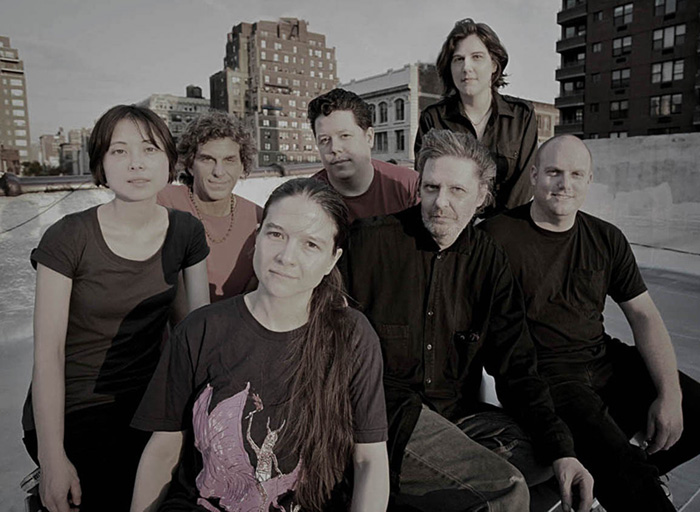
From left to right, guitars: Evelyne Buhler, Eric Hubel, Reg Bloor and Greg McMullen, conductor: Glenn Branca, drummer: Libby Fab, bass: Ryan Walsh; foto by Tony Cenicola
Interview with Glenn Branca
»I could demand in the contract that I have a 20 hour sound-check.«
Text
Alfred Pranzl, Roland Schöny
Veröffentlichung
10.10.2010
Schlagwörter
1984 Records
english
Glenn Branca
Interview

Unterstütze uns mit deiner Spende
skug ist ein unabhängiges Non-Profit-Magazin. Unterstütze unsere journalistische Arbeit mit einer Spende an den Empfänger: Verein zur Förderung von Subkultur, Verwendungszweck: skug Spende, IBAN: AT80 1100 0034 8351 7300, BIC: BKAUATWW, Bank Austria. Vielen Dank!







